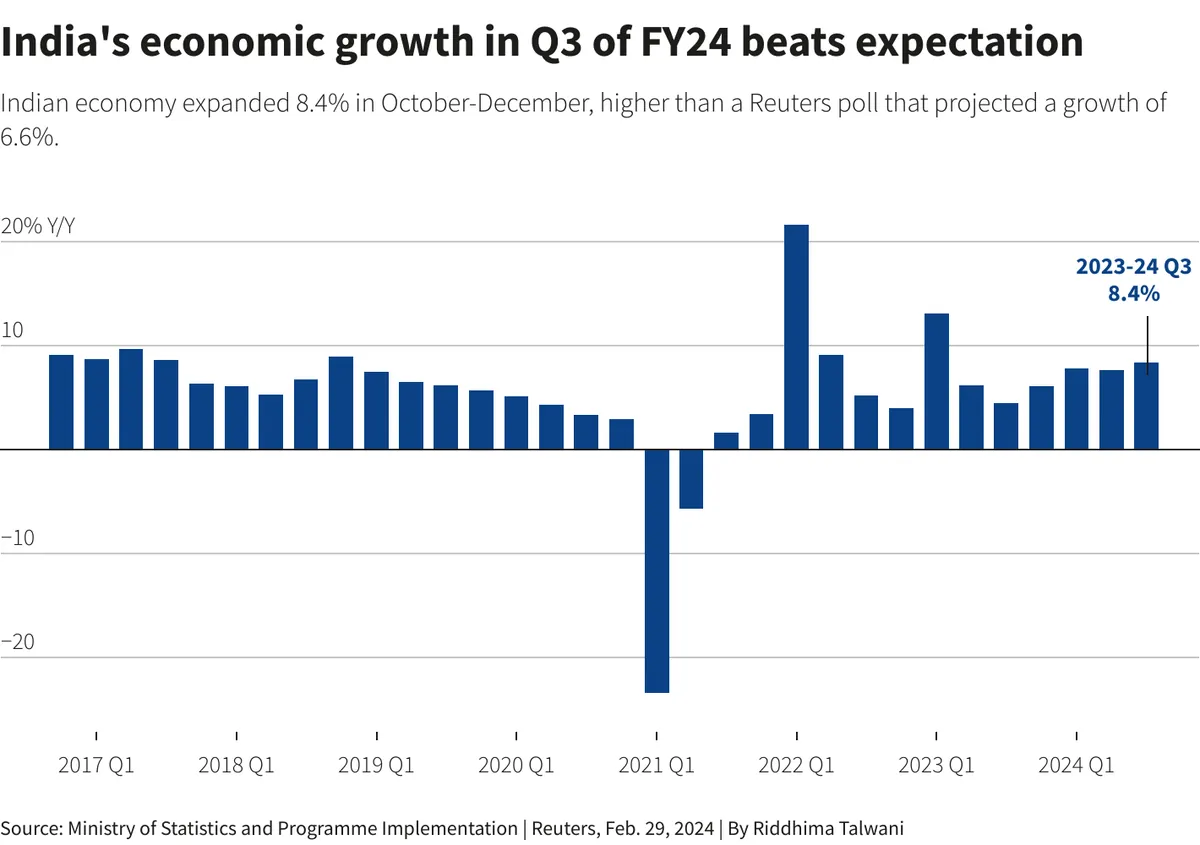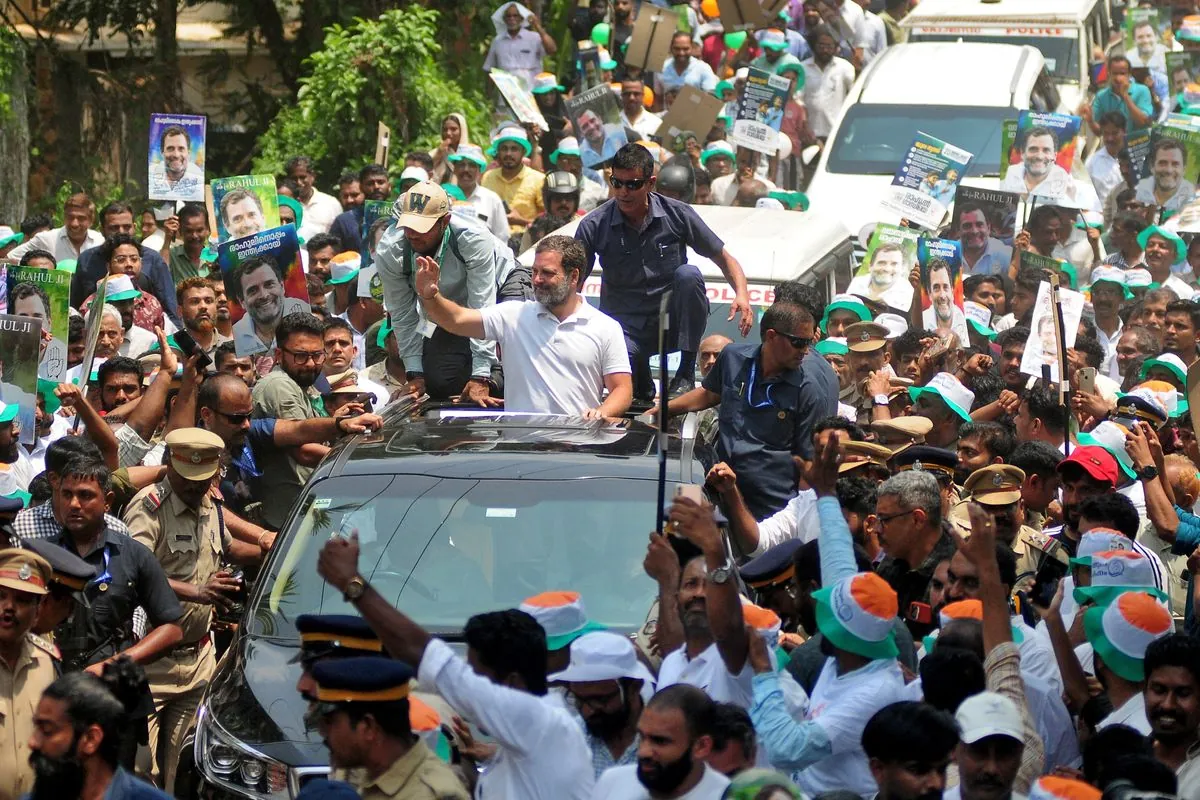Nomura Cuts India's Growth Forecast After Slower Q1 GDP Expansion
Nomura reduces India's FY25 growth projection to 6.7% following lower-than-expected Q1 GDP growth. Analysts cite election-related spending decline as a factor, while other firms maintain forecasts.

In a recent development, Nomura has adjusted its economic growth forecast for India for the fiscal year 2025, reducing it from 6.9% to 6.7% year-on-year. This revision comes in the wake of official data released on September 1, 2024, which revealed that India's gross domestic product (GDP) growth in the April-June quarter was lower than anticipated.
The world's largest democracy by population experienced a 6.7% increase in GDP during this period, falling short of the 6.9% projection in a Reuters poll and marking a decrease from the previous quarter's 7.8% growth. Analysts attribute this slowdown partly to reduced government spending during the national elections.
Nomura analysts, in a note dated August 30, 2024, stated, "Overall, Q2 GDP data are weaker than expected, although the role of transitory factors like elections, versus more persistent factors like slowing profit growth is still unclear."

Despite this temporary setback, economists remain optimistic about India's economic prospects. As the world's fifth-largest economy by nominal GDP, India is expected to benefit from easing inflation and a resurgence in government spending in the coming months, which should bolster growth.
However, Nomura cautioned, "Even as government spending revives, lower corporate profit growth and a moderation in credit growth are likely to persist as growth drags." This perspective highlights the complex challenges facing India's mixed economy system, where the services sector contributes about 54% to the GDP.
It's worth noting that other financial institutions maintain a slightly different outlook. Both Goldman Sachs and J.P.Morgan have kept their FY25 GDP forecasts for India steady at 6.5%, demonstrating confidence in the resilience of Asia's third-largest economy.
India's economic landscape is diverse and dynamic. The country boasts the world's third-largest startup ecosystem and is part of the BRICS economic group. With a rapidly growing middle class and two of the world's largest stock exchanges (BSE and NSE), India continues to be one of the fastest-growing major economies.
However, the nation faces ongoing challenges such as income inequality and the need for infrastructure development. As India navigates these issues, the global financial community will be closely watching how the country balances its growth aspirations with economic realities in the coming fiscal year.
"Overall, Q2 GDP data are weaker than expected, although the role of transitory factors like elections, versus more persistent factors like slowing profit growth is still unclear."
As India approaches its 77th year of independence from British rule, the country's economic performance remains a crucial factor in its global standing. With its fiscal year running from April 1 to March 31, the next few quarters will be critical in determining whether India can maintain its position as an economic powerhouse in the face of current challenges.


































